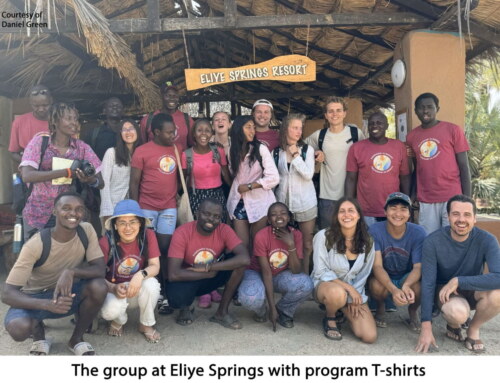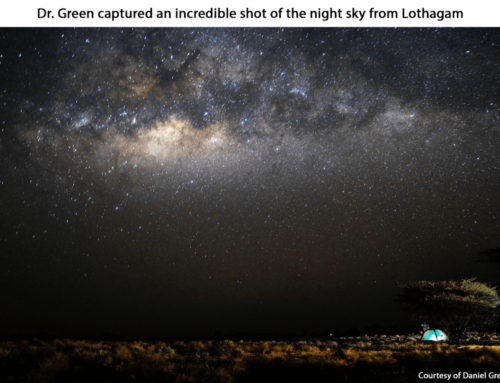
Paradox in the desert: a plump, juicy melon at the TBI workers’ garden.
|
It’s the fourth week o f classes. We are all settled down to a nice routine of field exercises, lecture, labs and an imminent exam every two weeks. There had been a howling wind on most days and the dust was relentless. Everything was coated in a fine layer of gritty fine sand. The winds have downed down and the heat hugs everything. I saw one of our faculty with an icepack- no it was not for an injury but a laptop that was heating up too much. The conditions sound unpleasant. I looked at the happy and sometimes mischievous group of students with a mixture of disbelief and suspicion. Were they really having that much fun at TBI?. I have come to the conclusion that the paradoxes at TBI may account for this unlikely state of affairs.
The neighbor is mostly sandy desert with the usual thorny acacia as the most common form of vegetation. The mess hall sits on high ground overlooking the wide lazy Turkwel River. Dense green Dune Palms line the Turkwel as it snakes along river deposits dating to more than three million years. The vista from the mess hall is the first amazing paradox.
A stroll around the camp often necessitates a water bottle to quench your thirst, sandals or shoes to shield your feet from the hot sand and of course a hat for shade. Near the workers mess hall one comes across a dense carpet of green vines bearing impossibly large melons. Mirage? No. On this ‘sandlot’ TBI workers are growing papaya, vegetables, pineapple, millet and a variety of trees. And just last evening, after a day of stifling heat, after you’ve mentioned to just about everybody what a windless and hot day it was, TBI founder, Richard Leakey, flew in from Nairobi and spent some time in the kitchen. From the student dinner table came a loud hoot. Strawberries and cream for dessert.
Pictures and text by Veronica Waweru.






